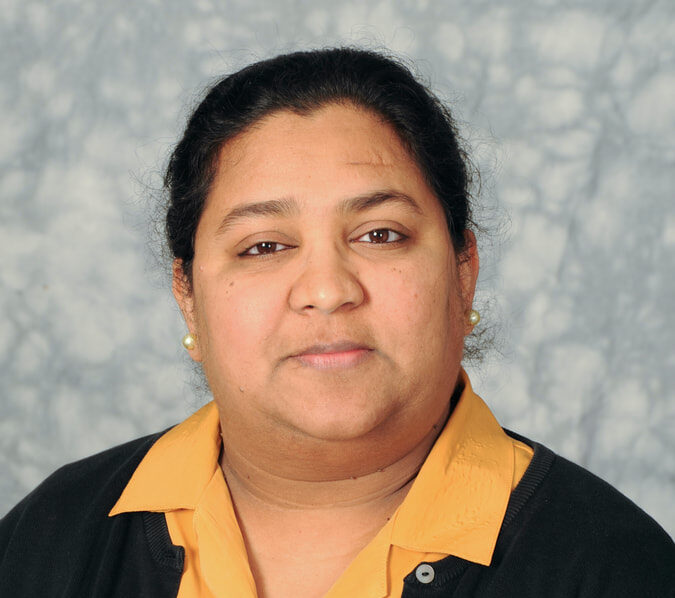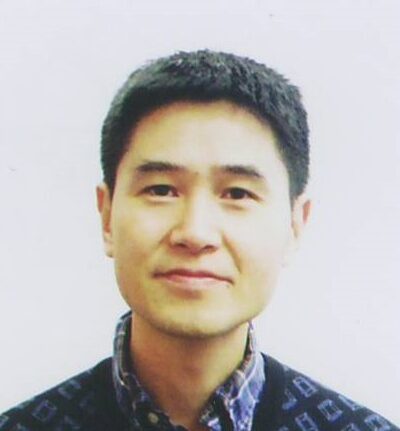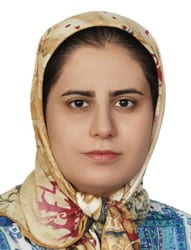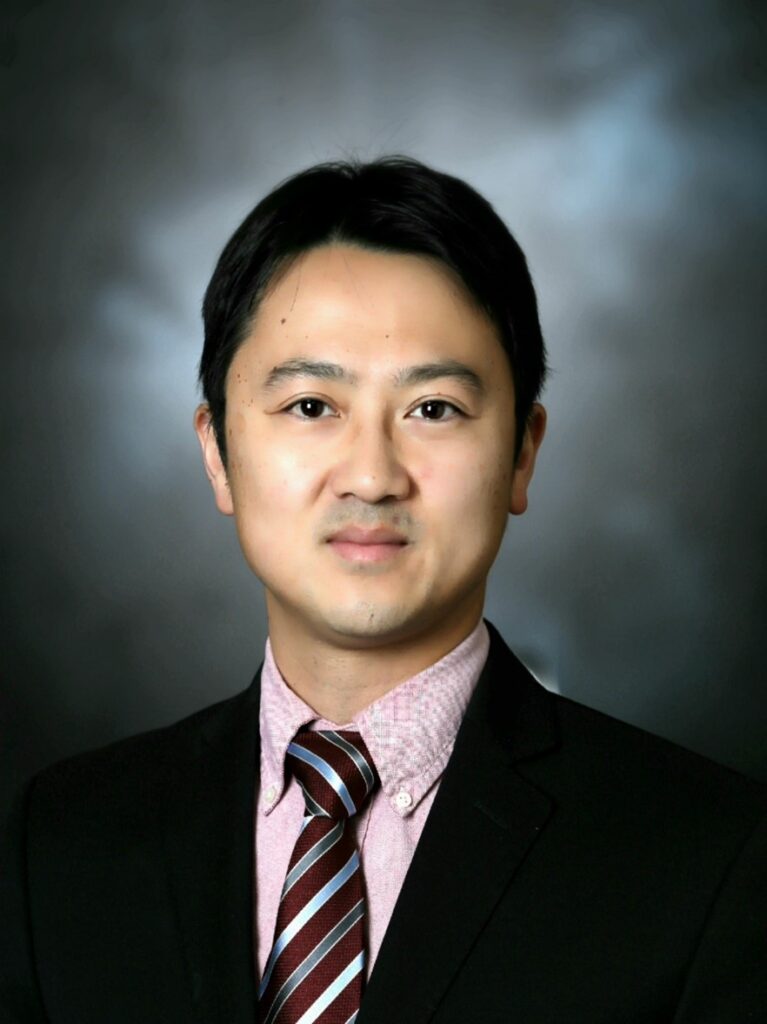About Us
As of now, Digital Twins for Health Consortium consists of 20 institutions across the nation, including 14 higher education institutions, 3 for-profit organizations, and 3 non-profit organizations, covering both academia and industry. In addition, we have partnered with three professional organizations and eight Historically Black College Universities (HBCUs). Since its formation, our consortium has been taking a team science approach to implement diversity, equity, and inclusion.
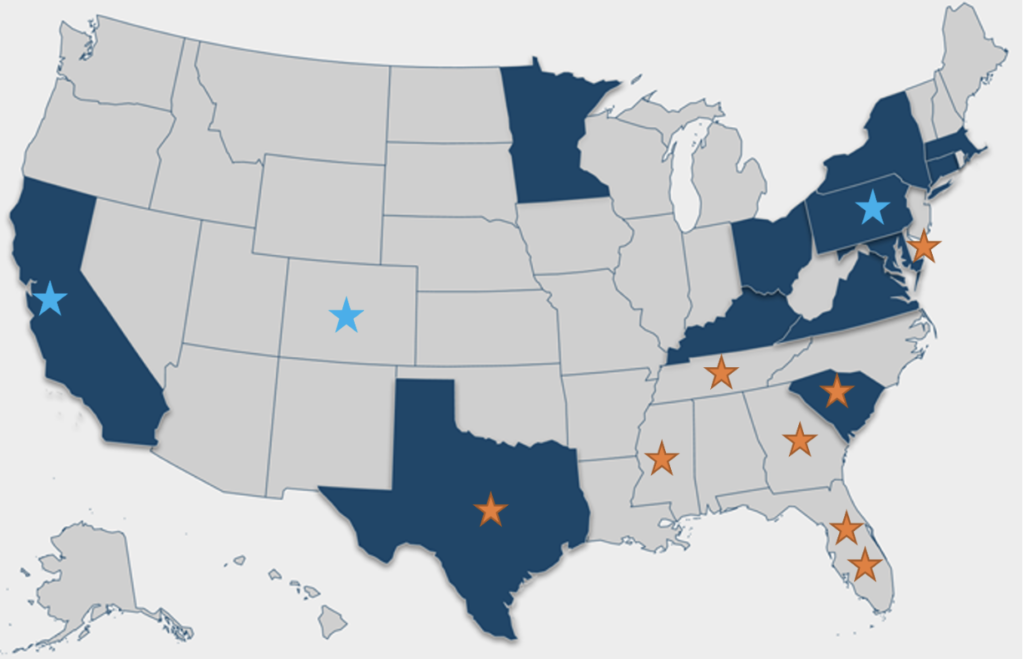
Our Mission
Digital Twins for Health Consortium is committed to innovative research and pioneering development of cutting-edge human-centered digital twin technologies for better health and well-being of individuals in the society.
Meet Our Team
Jun Deng, PhD, DABR, FInstP, FAAPM, FASTRO
Professor of Therapeutic Radiology; Director of Physics Research, Therapeutic Radiology, Yale University School of Medicine
Dr. Jun Deng is a Professor and Director of Physics Research at the Department of Therapeutic Radiology of Yale University School of Medicine, an ABR board certified medical physicist at Yale-New Haven Hospital, and the Principal Investigator of the Yale Smart Medicine Lab (YSML).
With funding from NIBIB, NSF, NCI, DOE and YCC, Dr. Deng’s research has been focused on artificial intelligence, machine learning, big data, and medical imaging for early cancer detection, real-time clinical decision support, digital twins of cancer patients, as well as AI-empowered mobile health and smart medicine.
Dr. Deng has been serving on the Editorial Board of numerous peer-reviewed journals, on the study sections of NIH, NSF, DOD, ACS, RSNA and ASTRO since 2005, and as scientific reviewer for various science foundations and institutions
since 2015. Dr. Deng is an elected fellow of the Institute of Physics, AAPM, and ASTRO.
Harlan Krumholz, MD, SM, Member of the National Academy of Medicine
Harold H. Hines, Jr. Professor of Medicine (Cardiology), Yale University
Dr. Harlan Krumholz is a cardiologist and scientist at Yale University and Yale New Haven Hospital. He is the Harold H. Hines, Jr. Professor of Medicine. He is a leading expert in the science to improve the quality and efficiency of care, eliminate disparities and promote equity, improve integrity and transparency in medical research, engage patients in their care, and avoid wasteful practices. Recent efforts are focused on harnessing the digital transformation in healthcare to accelerate knowledge generation and facilitate the delivery of care aligned with each patient’s needs and preferences.
Dr. Krumholz has been honored by membership in the National Academy of Medicine, the Association of American Physicians, and the American Society for Clinical Investigation. He was named a Distinguished Scientist of the American Heart Association and received their Award of Meritorious Achievement and their Clinical Research Prize. He served as a member of the Advisory Committee to the Director of the National Institutes of Health. He is a co-founder of HugoHealth, a patient-centric platform to engage people as partners in research and clinical care, facilitate the secure acquisition and movement of digital health data, and promote learning health communities. He is a co-founder of Refactor Health, an enterprise healthcare AI-augmented health data management company. Dr. Krumholz has published more than 1000 articles and three books and has an h-index of more than 200.
Qi Wang, PhD
Professor of Mathematics, University of South Carolina
Dr. Qi Wang is a professor of Mathematics at the Department of Mathematics at the University of South Carolina. He is an applied and computational mathematician and modeler.
His research interests include modeling and computation of complex systems in materials and life science, development of efficient numerical algorithms for partial differential equations, data science and machine learning applications in materials and life science.
He is currently developing an individualized, multiscale, multimodal digital twin framework for a cancer patient to be used in optimizing the patient treatment pathway. He is especially interested in developing cutting-edge deep learning models to approximate complex biomedical systems of spatial-temporal resolution. He has published over 185 peer-reviewed journal papers and has been continuously funded by federal funding agencies.
Ying Ding, PhD
Bill & Lewis Suit Professor, School of Information & Dell Medical School, University of Texas at Austin
Dr. Ying Ding is Bill & Lewis Suit Professor at School of Information, University of Texas at Austin.
Her current research interests include data-driven science of science, AI in healthcare, Semantic Web, knowledge graph, data science, scholarly communication, and the application of Web technologies.
She has been involved in various NIH, NSF and European-Union funded projects. She has published 240+ papers in journals, conferences, and workshops, and served as the program committee member for 200+ international conferences. She is the co-editor of book series called Semantic Web Synthesis by Morgan & Claypool publisher, the co-editor-in-chief for Data Intelligence published by MIT Press and Chinese Academy of Sciences, and serves as the editorial board member for several top journals in Information Science and Semantic Web. She is the co-founder of Data2Discovery company advancing cutting edge AI technologies in drug discovery and healthcare.
Huanmei Wu, PhD
Professor and Department Chair of Health Services Administration and Policy; Assistant Dean for Global Engagement, Temple University
Dr. Wu is the Department Chair of Health Services Administration and Policy and Assistant Dean for Global Engagement at Temple University College of Public Health.
With funding from NIH, NSF, USAID, JDRI, RWJF, local organizations, and national industries, Dr. Wu’s research covers bioinformatics, health informatics, clinical informatics, big data analytics, predictive modeling, machine learning, precision medicine, public health, and clinical decision support systems (CDSSs). Her work features interdisciplinary collaborations with academia, community health centers, research institutes, industrial partners, and various stakeholders in healthcare.
Dr. Wu has been serving on program committees for numerous national and international conferences, as guest editor of several peer-reviewed journal special issues, on the study sections of NIH and NSF, and as a scientific reviewer for various science foundations and institutions.
Hongfang Liu, PhD, Fellow of ACM and IAHSI
McWilliams Chair Professor and Director of Translational AI Excellence and Applications in Medicine, University of Texas Health Science Center at Houston
Dr. Liu’s research has been extensively funded by the National Science
Foundation and the National Institute of Health (NIH) since 2003. Her work
accelerates the pace of knowledge discovery, implementation and delivery of
improved health care.
Dr. Liu is a member of several professional societies,
including the American Medical Informatics Association (AMIA) and the
International Society for Computational Biology (ISCB). Dr. Liu has extensive
expertise in data normalization, clinical NLP, and predictive modeling in the
healthcare domain with nearly 400 research articles. She led the data
normalization program in Mayo Strategic Health IT Advanced Research Projects
(SHARP) Program Area 4 Consortium (SHARPn), the core technology base for
SHARPn, to enable the use of EHR for secondary purposes, such as quality
measurement, comparative effectiveness research, translational research, high
throughput phenotyping, and outcomes research.
Shimei Pan, PhD
Associate Professor, University of Maryland Baltimore County
Dr. Shimei Pan is an Associate Professor at the Information Systems Department of UMBC. Before joining UMBC, Dr. Pan was a research scientist at IBM Watson Research Center in New York.
Her primary research interests are AI, Machine Learning, and Natural Language Processing (NLP). She is also interested in ethical AI/ML and human-AI interaction.
Dr. Pan has authored 100+ peer-reviewed papers in AI conferences and journals. She has also served on the program committees for major international conferences (e.g., ACL, EMNLP, NAACL, and IJCAI). Dr. Pan has co-chaired several major international conferences and workshops such as IEEE ICTAI 2020, ACM IUI 2019, ACM IUI 2015, IJCAI workshop on Artificial Intelligence and Computational Psychology, and IEEE BIBM workshop on Data Mining in Translational Biomedical Informatics
Haiying Shen, PhD
Associate Professor, Computer Science Department, University of Virginia
Dr. Haiying Shen is currently an Associate Professor in the Department of Computer Science and affiliated with the School of Data Science at the University of Virginia.
Her research interests include distributed computer systems, cloud and edge computing, distributed machine learning, big data and cyber-physical systems.
In these areas, she has published more than 350 journal and conference papers in top tier journals and conferences. Her papers received George N. Saridis best transactions paper award 2021, the best paper awards in CloudCom2016 and NAS2018, best paper runner-up award in ICCCN2015, best paper award nominees in ICPP2021, MASS2011 and CCGrid2009. She was a recipient of the TCSC Mid-career Award 2015, IBM Faculty Award 2015, Microsoft Faculty Fellowship Award 2010, and NSF CAREER Award 2013. She is an Associate Editor for the IEEE/ACM Transactions on Networking (TON), IEEE Transactions on Mobile Computing (TMC), IEEE Networking Letters (NL). She is also a program committee member of many leading conferences, and the former program co-chair for a number of international conferences. She is a senior member of the IEEE and the ACM.
Tanveer Syeda-Mahmood, PhD, Fellow of IEEE, AIMBE, and MICCAI
IBM Fellow, IBM Almaden Research Center
Dr. Tanveer Syeda-Mahmood is an IBM Fellow and Global Imaging AI Leader in IBM Research. Dr. Syeda-Mahmood graduated from the MIT AI Lab in 1993 with a PhD in Computer Science.
Prior to IBM, she worked as a Research Staff Member at Xerox Webster Research Center, Webster, NY. She joined IBM Almaden Research Center in 1998. Dr. Syeda-Mahmood is the General co-Chair of MICCAI 2023, the premier conference in medical imaging. She is also the Program co-Chair of IEEE ISBI 2022 to be held in Calcutta, India. She was the General Chair of the First IEEE International Conference on Healthcare Informatics, Imaging, and Systems Biology, San Jose, CA 2011. She was also the program co-chair of CVPR 2008. Dr. Syeda-Mahmood is a Fellow of IEEE. She is also the first IBMer to become an AIMBE Fellow. She is also a member of IBM Academy of Technology. Dr. Syeda-Mahmood was declared Master Inventor in 2011 and in 2019. She is the recipient of key awards including IBM Corporate Award 2015, Best of IBM Award 2015, 2016 and several outstanding innovation awards.
Aidong Zhang, PhD, Fellow of ACM, AIMBE, and IEEE
William Wulf Faculty Fellow and Professor, University of Virginia
Dr. Aidong Zhang is a William Wulf Faculty Fellow and Professor of Computer Science, Data Science, and Biomedical Engineering at University of Virginia. She was the Founding Chair of the ACM (Association for Computing Machinery) Special Interest Group on Bioinformatics, Computational Biology, and Biomedical informatics (2010-2015) with more than 300 members. She served as the Editor-in-Chief of the IEEE Transactions on Computational Biology and Bioinformatics (TCBB) in 2017-2021.
Her research interests include machine learning, data mining/data science, bioinformatics, and health informatics. She has authored over 390 research publications in these areas. She is a fellow of ACM, AIMBE, and IEEE.
Luke Achenie, PhD, FAIChE
Professor of Chemical Engineering; Director of Multiscale Scientific Computing and Data Science Lab, Virginia Tech
Dr. Luke Achenie is currently professor of Chemical Engineering with courtesy appointments in Biomedical Engineering and Mechanics (BEAM) and Health Sciences (FHS) all at Virginia Tech.
Dr. Achenie has focused his research in computational modeling of multi-scale systems with Mathematical Programming (optimization) as a core technology in his research. Achenie’s current research is in data science (machine learning and AI), molecular dynamics, and optimization (math programming).
Dr. Achenie has authored/co-authored more than 190 papers in journals and peer-reviewed conference articles. Dr. Achenie once served as a rotating NSF Program Director and has served on numerous committees in ACS (American Chemical Society) and the AIChE (American Institute of Chemical Engineering). He is also an active member of SIAM and AAAS. He is AIChE Fellow, Carnegie African Diaspora Fellow and member of Connecticut Academy of Engineering. Finally, Dr. Achenie has served on several NIH study sections (former standing member of NIH/BDMA and NIH/BCHI) and NSF panels.
Ying Xiao, PhD, FAAPM
Professor of Radiation Oncology, University of Pennsylvania
Dr. Ying Xiao is a Professor and an ABR board certified medical physicist at the Department of Radiation Oncology of University of Pennsylvania.
Dr. Xiao has significant experience in developing methods and strategies to convert the data into knowledge to better guide patient treatment (Big Data) and adapted our clinical and clinical research quality processes for high efficiency and accuracy with machine learning/artificial intelligence including the optimization of radiation therapy treatment plan using imaging, clinical information.
Dr. Xiao works closely with NCI’s clinical trial network and is familiar with the CDISC requirements of the clinical trial data elements. From the professional standardization effort with American Association of Physicists in Medicine (AAPM) and American Society of Therapeutic Radiation Oncology (ASTRO), clinical standards such as AAPM TG-263 and HL7 are regularly utilized. Dr. Xiao and colleagues have conducted investigations into obtaining the best radiotherapy treatment plans that target the tumor while sparing critical structures; developed quality assurance science; provided AI/machine learning models to assist cancer therapy decision making.
Sanjay Purushotham, PhD
Assistant Professor, University of Maryland Baltimore County
Dr. Sanjay Purushotham is an Assistant Professor in the Department of Information Systems at the University of Maryland, Baltimore County. He obtained his Ph.D. in Electrical Engineering from the University of Southern California.
His research interests are machine learning, deep learning, computer vision, and its applications to biomedical informatics, climate sciences, and multimedia data mining. His current work involves developing novel deep learning models for data-driven analysis of healthcare time series data.
He has produced more than 50 peer-reviewed publications at machine learning/data mining venues such as KDD, AAAI, ICML, and NeurIPS and has won the best paper and best poster awards at international conferences. His research is funded by NSF, NASA, ARL, and ESIP. He has co-chaired and co-organized the Time Series workshops at IJCAI in 2022 and the KDD conferences from 2016 to 2022.
Zhiyuan Chen, PhD
Professor of Information Systems, University of Maryland Baltimore County
Dr. Zhiyuan Chen has obtained a BS and a MS from Fudan University, China, and a PhD in Computer Science from Cornell University. He is currently a professor at the Department of Information Systems, University of Maryland Baltimore County.
His research covers the areas of data science, big data, privacy preserving data mining and data management, data exploration and navigation, semantic-based search and data integration using semantic networks, adversarial learning and its applications in cyber security.
He has published extensively in these areas and has received funding from NSF, Department of Energy, IBM, Office of Naval Research, MITRE, and Department of Education.
Richard Fletcher, PhD
Research Scientist, Mechanical Engineering & Lincoln Laboratory, MIT; Research Scientist, Psychiatry, Massachusetts General Hospital
Dr. Rich Fletcher directs the Mobile Technology Group which develops a variety of wearable sensors, mobile devices, diagnostic algorithms, and machine learning/AI algorithms to address problems in point of care diagnostics, behavior medicine, and mental health. Dr. Fletcher works to address health disparities through his extensive work in global health, with funded research from NIH, Gates Foundation and USAID.
Dr. Fletcher is also a research scientist at Massachusetts General Hospital, Recovery Research Institute, where he applies Digital Phenotyping, Internet of Things, and mHealth platforms to address the serious problem of drug addiction and substance abuse. In 2011, Dr. Fletcher was an early creator of mHealth systems for Just-In-Time interventions (US Patent 8,655,441) and developed the MIT Media Lab’s first generation of wearable sensors for ambulatory measurement of psychophysiology (now commercialized through Empatica).
Dr. Fletcher holds over 20 patents in the areas of wireless sensors and wearable devices. As a student, Dr. Fletcher worked directly with Neil Gershenfeld and Kevin Ashton who coined the name “Internet of Things.” Dr. Fletcher is also a military veteran and works as a visiting scientist at MIT Lincoln Laboratory to support military applications of wireless and mHealth technologies. Dr. Fletcher’s extensive prior work in RFID at the MIT Media Lab and MIT’s Auto-ID Lab helped lay the foundation for Digital Twin paradigms for the Internet of Things, which is now being adapted for human health.
Cecil Lynch, MD, MS
Accenture Global Biomedical Informatics Lead
Dr. Cecil Lynch is recognized as a thought leader in health informatics and has served in leadership roles within Academic and Clinical Healthcare Systems (UC Davis), the HL7 Standards Development Organization including as a co-Chair of the Vocabulary Technical Committee, and currently as a member of the Architectural Review Board and the FHIR Governance Board. He serves as a National and International advisor on Health Informatics and has served numerous government agencies. He designed and implemented the Semantic Web ontology and JESS Rules Engine-based CDC National Tuberculosis Surveillance System. He was technical lead and architect of the Template Service to validate quality of incoming data, for the National Australian Personally Controlled Electronic Health Record (PCEHR) program that supported aggregation of all personal health data nationally. This effort included integration of data from dozens of different EMR systems. As Chief of the State of California Office of Informatics and Surveillance, he designed strategy for systems integration, surveillance systems design and vendor selection, HIPAA compliance across divisions.
At Accenture he is a Subject Matter Advisor on Big Data in Healthcare, Health and Clinical Analytics, Health Data Exchange and Connectivity. He serves as a domain expert in data standards, interoperability and enterprise architecture and is the Product Owner and Enterprise Architect of the Accenture Healthcare on Azure Platform.

Evangelia Katsoulakis, MD
Veterans Administration
Dr. Evangelia Katsoulakis received her undergraduate training from MIT, with dual degrees in Biology and Economics. She is an attending physician in the Department of Therapeutic Radiology at the James A. Haley Tampa VA. She is an experienced radiation oncologist whose passion is to improve the lives of patients through the use of data science and health informatics. She is board eligible for Clinical Informatics.
She currently is a core member of the VA ROQS Radiation Oncology Quality Survey Program in the VA and works to develop national quality measures in radiation oncology. She also works with Precision Oncology in the VA. She is a founding member of Precision GRID, Genomics Clinical Radiotherapy Information Database, which is an effort that will generate the largest collection of radiation oncology data merged with clinical and genomic data. She has engaged in multiple projects and collaborations in the fields of radiomics, radiogenomics, genomics, and informatics. She leads machine learning initiatives in the VA and has obtained Department of Defense Grant funding as well as Florida State Funding for her work. She guides the clinical decision support modules and overall schema for trial design/schema as well as modeling care of the individual cancer patient.

Perry W. Payne, Jr., MD/JD/MPP
George Washington University, Dept. of Clinical Research and Leadership/Dept. of Health Policy
Dr. Perry Payne is the Healthcare Transformation Leaders at George Washington University. He has taught, researched, and written papers on the ethical, legal, and social implications of innovative health care technologies for over ten years. His research interests include increases access to novel technologies, utilizing technology to better determine the variation in response to prescription drugs in diverse populations, and translating innovative research into community benefits as a method of addressing health disparities.
Jin Chen, PhD
University of Kentucky, Associate Professor, Internal Medicine; Associate Professor, Computer Science
Dr. Jin Chen is an associate professor in the Institute for Biomedical Informatics (IBI), Department of Internal Medicine and Department of Computer Science, the University of Kentucky since 2016.
Dr. Chen’s research focuses on the development of data mining and computer vision algorithms to solve problems in medical and biological informatics. He has developed a series of algorithms for phenomics and genomics data analysis, including inter-functional clustering, heterogeneity pattern recognition, phenotype ontology development, phenotype data quality control, gene ranking, data visualization, etc. He is also interested in biological network reconstruction using high-dimensional omics data.
His work covers regulatory module identification, organelle communication pattern mining, and data-driven ontology construction. He has published more than 50 papers in biomedical informatics, computer science, and biology. Dr. Chen’s research has been supported by NSF, NIH, DOE, MSU and UKY.
Jinwei Liu, PhD
Assistant Professor, Florida A&M University
Dr. Jinwei Liu is an Assistant Professor in the Department of Computer and Information Sciences at Florida A&M University (FAMU). He received the Ph.D. degree in Computer Engineering from Clemson University and the M.S. degree in Computer Science from Clemson University and University of Science and Technology of China.
His research interests include cloud computing, AI/ML, health care, cybersecurity, big data, data mining, social networks, and wireless networks, etc. His work has led to a number of top journal/conference publications (e.g., IEEE TON, IEEE TMC, IEEE TPDS, etc.).
He was recognized for outstanding achievement in academic publications and was awarded a FRAP grant at FAMU. He has served regularly on program chairs/committees, proceeding editor of several international conferences/workshops such as CCGRID, ICCCN, ISCAI, ICFEC, INTERNET, INFOCOMP, IWMSN, NEAC, ICCCBDA, SOENG, etc., and the Editor-in-Chief and/or Editorial Board Member of several journals. He is a member of the IEEE and ACM.
Leili Shahriyari, PhD
Assistant Professor, University of Massachusetts Amherst
Dr. Leili Shahriyari is an assistant professor at University of Massachusetts Amherst. Her lab, currently with three graduate students, four undergrads, and two post docs, develops innovative frameworks to systematically employ a combination of machine learning (ML) and statistical methods as well as mathematical techniques to arrive at personalized cancer therapies. She studied computer science with a specific focus on ML and data science, and mathematics, particularly differential geometry.
During her postdoc at MBI as an MBI/NSF funded postdoctoral fellow, she pursued an independent research program and established collaboration with biologists and physicians. Her pioneering works on computational oncology have led to the UT System Rising STARs award, more than thirty invited talks, and several sponsored travel awards such as AWM-NSF and two Landahl-Busenberg travel awards, invitations as a panelist on international conferences, and reviewer for more than 18 different scientific journals, Otto-Hahn-Medal of Max Planck Institute, an NSF-NIH review panel, and an NCI review panel. Moreover, her R21 NCI grant received impact score 14 and percentile 1. Since she has a strong background in mathematical modeling, bioinformatics, and ML, she will participate in developing the mathematical model and connecting the proposed bioinformatics, mathematical and ML models.
Amit Majumdar, PhD
Associate Professor, Department of Radiation Medicine and Applied Sciences, University of California San Diego
Dr. Amit Majumdar is the Director of SDSC’s Data Enabled Scientific Computing division and is an Associate Professor in the Department of Radiation Medicine and Applied Sciences at UC San Diego. He received his B.S. from Jadavpur University, Calcutta, India in 1985, M.S. from Idaho State University in 1988 and Ph.D. from University of Michigan in 1996.
After working one year at the Ford Research Laboratory in Michigan, he joined the San Diego Supercomputer Center in 1997. His research interests are in high performance computing (HPC), computational science, and cyberinfrastructure software and services such as science gateways. He has developed parallel algorithms for various kinds of HPC machines and is interested in optimizing, scaling and analyzing performance of scientific applications on HPC machines. He has been involved in computational science projects where medical applications utilize HPC and cyberinfrastructure.
Some of his recent funded projects include developing the neuroscience gateway (NSG) for computational neuroscientists (NSF and NIH funded), analyzing performance of scientific applications on next generation dense many core architectures (NSF funded), developing parallel I/O libraries for physics-based modeling codes (DoD funded) etc. He serves as a PI or Co-PI on multiple research projects funded by NSF, NIH, DoD, AFOSR, and industry (Intel, Engility, Microsoft).
Subhashini Sivagnanam, MS
Manager of Cyberinfrastructure Solutions and Services, SDSC, University of California San Diego
Subhashini Sivagnanam is an expert in scientific data integrity, cyberinfrastructure (CI) tool development, and blockchain-based solutions. Subhashini Sivagnanam leads the Cyberinfrastructure Solutions and Services (CISS) group at SDSC.
Her primary areas of research focus are on the fields of distributed computing, cyberinfrastructure development, scientific data management, and reproducible science.
As a PI, Co-PI, or Key Personnel, she has been involved in various NSF, NIH, and SDSC internal funded projects that involve developing CI research software, providing CI services to the research community, and carrying out HPC-related research.
Omar Martinez, JD, MPH, MS
Associate Professor, Department of Population Health Sciences, College of Medicine, University of Central Florida
Dr. Omar Martinez completed a dual degree program, simultaneously gaining his master’s degree in public health and juris doctorate at Indiana University-Bloomington. He also completed a master’s degree in clinical research methods at Columbia University Mailman School of Public Health. Professor Martinez completed an NIH T32 postdoctoral research fellowship in behavioral science research in HIV prevention at the HIV Center for Clinical and Behavioral Studies at Columbia University and the New York State Psychiatric Institute.
Professor Martinez’s research expertise includes the correlates, prevalence, and prevention of substance use, mental illness, and HIV among underserved and vulnerable populations. His work has contributed to a better understanding of the impact of syndemic factors, including both individual-level factors (e.g. substance use and mental health problems) and the larger social context (e.g. immigration policies, stigma, discrimination, structural racism, violence, and cultural imperialism) that affects the overall health outcomes among systematically and structurally excluded populations.
Sung Jun Ma, MD
Assistant Professor, Department of Radiation Oncology, Ohio State University Comprehensive Cancer Center
Dr. Sung Jun Ma is an Assistant Professor in the Department of Radiation Oncology at the Ohio State University Comprehensive Cancer Center, treating patients with head and neck and thoracic malignancies. Dr. Ma’s research interests include machine learning in oncology, personalized medicine, outcomes research, racial and socioeconomic disparities, financial toxicity, symptom burden, and quality of life. Dr. Ma has authored over 60 peer-reviewed manuscripts and is a member of ASTRO and ASCO. Dr. Ma’s research is funded by Roswell Park Comprehensive Cancer Center and NCCN/AstraZeneca.
Rui Zhang, PhD
Associate Professor, Department of Surgery, University of Minnesota
Rui Zhang, PhD, FAMIA is Founding Chief of Division of Computational Health Sciences and Associate Professor in the Department of Surgery at the University of Minnesota. He is the Director of Natural Language Processing (NLP/IE) research program and Scientific Co-Director of Innovative Methods & Data Science (IMDS) program at the Center for Learning Health System Sciences. His primary research interest includes clinical NLP, text mining, literature-based discovery, clinical informatics, and complementary and alternative medicine informatics. He has been a PI on multiple NIH R01 grants including a dietary supplement (DS) knowledge base (NCCIH), multimodal learning for DS safety use (NCCIH), drug repurposing for Alzheimer’s disease (NIA), and imbalanced learning for cancer cardiotoxicity prediction (NCI). He has published 100 papers, and his work has been featured by JBI and The Wall Street Journal. Dr. Zhang serves on the Editorial Board of multiple journals including JAMIA, BMC Med Infor & Dec Making, JHIR. Follow Rui on Twitter at @RuiZhang1229 and lab at http://ruizhang.umn.edu.
April Heyward
President, South Carolina Academy of Science
April Heyward is a STEM Professional, South Carolina Academy of Science (SCAS) President, NSF Reviewer, Researcher, R Programmer, ASPA PA Times Author, SCAS Council Member, and ASPA Section on Science and Technology in Government (SSTIG) Executive Committee Officer. Her research and teaching interests are Bibliometrics, Broadening Participation in STEM, Data Science, Health Policy, Machine Learning, Public Health, Research Methods, Science Policy, Scientometrics, Social Media Research, and STEM Education and Training. April is most interested in employing Data Science and Machine Learning to inform and predict health outcomes and to inform health decision making.
April’s skills and experience includes R Programming (R Coding), RStudio IDE (Integrated Development Environment), Data Science, Machine Learning, Natural Language Processing, Text Mining, Bibliometric Analysis and Science Mapping (Web of Science Core Collection Data and PubMed Data), Sentiment and Emotions Analysis, Twitter API, Network Analysis, Primary and Secondary Data Collection, Data Curation, Data Wrangling, Data Analysis, Data Visualization, Quantitative Methods, Qualitative Methods, Descriptive and Inferential Statistics, and Survey Development and Analysis,.
Her educational background includes a Master of Research Administration from the University of Central Florida. She is in the Dissertation phase of the Doctor of Public Administration program at Valdosta State University. April is a Riley Institute Diversity Fellow at Furman University.









